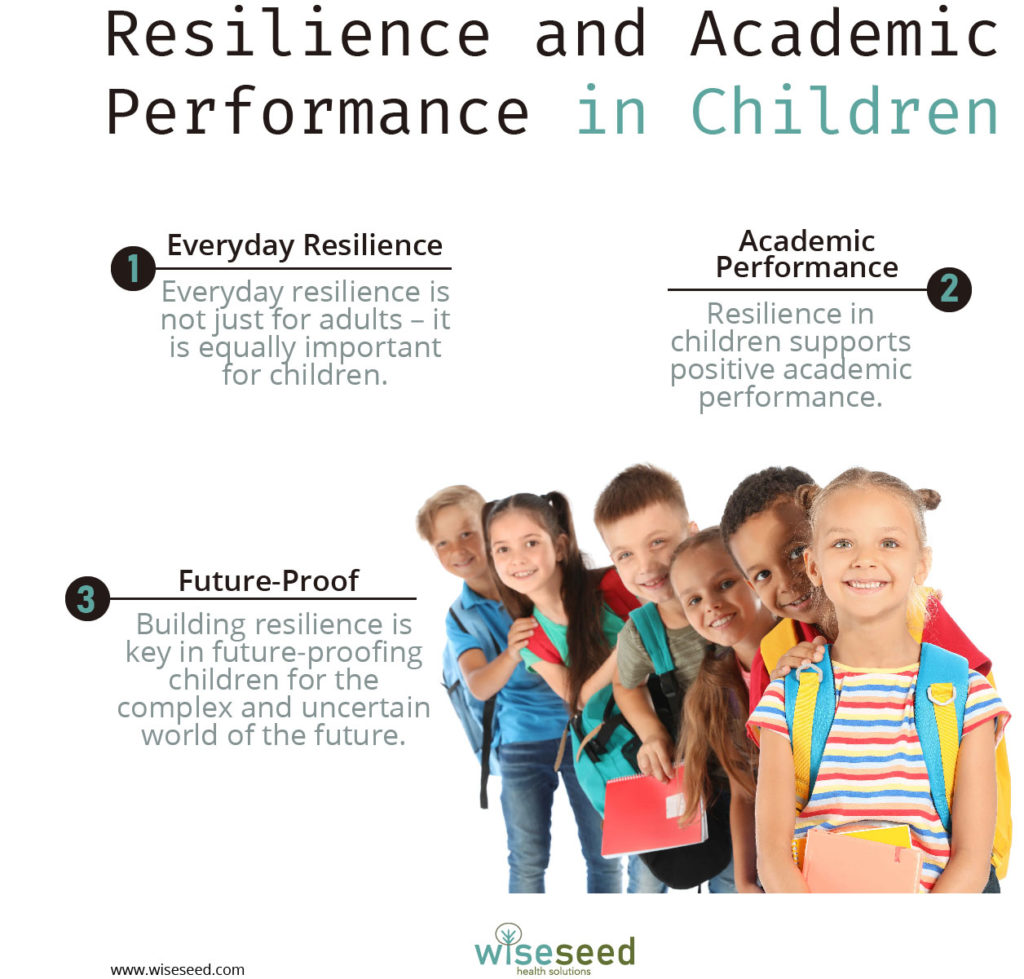Resilience and Academic Performance in Children

It’s that time of year when school report cards start arriving home, summarising children’s academic performance across a range of domains. It’s an important indication of how well children are engaged with their curriculum, and their grades can be a source of great pride (or concern) for parents everywhere.
However, when reviewing your child’s grades, you can easily overlook that a powerful influence of their academic potential is their level of resilience (1). Critically, the more resilient your child is, the better they can perform academically and successfully engage with the stress of exams, evaluations, and peer dynamics (2). Further, well-documented research (3) finds that non-resilient children in the school environment are more likely to:
– have trouble making friends
– lack self-esteem
– suffer from high levels of stress and have hyper-aroused senses
– become withdrawn, truant, or drop out of school
– develop self-harming tendencies
Accordingly, intentionally developing resilience in your children can assist with their academic performance and their overall school experience. But it’s also about better preparing them for their future, as the implications of childhood non-resilience can last for decades, with non-resilient children experiencing a powerful range of social, psychological, and physical difficulties in later life (4).
More broadly, building resilience in children is more than just supporting good grades. When you consider the darkening future that today’s children face, with the implications of climate adaptation, growing inequality, and accelerating change, the need to build children’s resilience so they can thrive in a complex and uncertain world becomes even more pressing.
For these reasons we are developing a series of articles focused on helping you develop and nurture your child’s everyday resilience.

References and Further Reading
1 Cahill, H., et al. (2014). Building resilience in children and young people. Melbourne Graduate School of Education, The University of Melbourne.
2 Putwain, D., et al. (2013). Resilient children are less test anxious and perform better in tests at the end of primary schooling. Learning and Individual Differences. 28. 41–46. 10.1016/j.lindif.2013.09.010.
3 Gardner, R. & Stephens-Pisecco, T. (2019). Empowering Educators to Foster Student Resilience, The Clearing House: A Journal of Educational Strategies, Issues and Ideas, 92:4-5, 125-134, DOI: 10.1080/00098655.2019.1621258
4 Ibid.

Ten Minutes is All You Need
Research has shown that ten minutes of moderate-to-vigorous exercise performed each day is enough to significantly reduce your risk of early death.

Psychological Resilience in the Pandemic Age
It’s the combination of physical, psychological and spiritual practice that maximises your resilience during the pandemic age.





